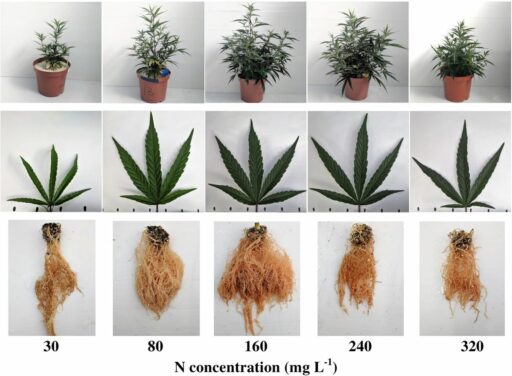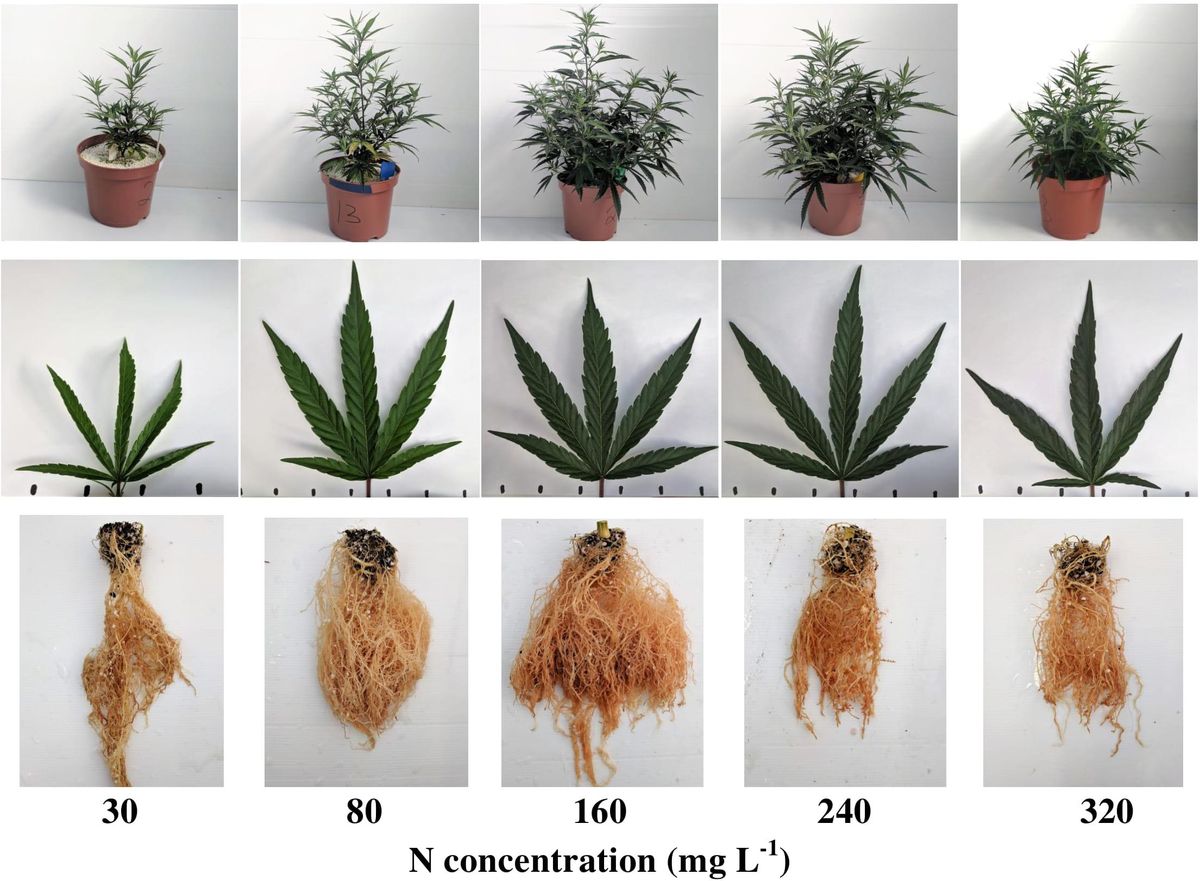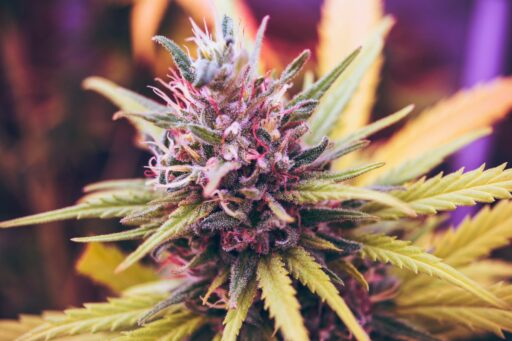Maryland’s evolving landscape of marijuana laws presents a complex environment for consumers, businesses, and lawmakers alike. With a mix of medical and recreational use legislation, local resistance, and opportunities for entrepreneurship, understanding the nuances of Maryland’s cannabis policies is crucial for navigating the green. This article delves into the current state of cannabis legislation, local regulations, business prospects, legal implications, and the potential future developments in the state.
Key Takeaways
- Maryland has legalized medical cannabis and is navigating the intricacies of recreational use, including taxation and social equity initiatives.
- Local jurisdictions, such as Prince George’s County, are implementing their own restrictions on cannabis dispensaries, challenging state authority.
- The state is fostering entrepreneurship in the cannabis industry, with support mechanisms for minority-owned businesses and a streamlined licensing process.
- Cannabis users in Maryland are gaining employment protections, but must remain cognizant of their rights and the evolving role of law enforcement.
- Future legislative changes in Maryland are likely to be influenced by public opinion and could introduce innovative business models in the cannabis sector.
The Current State of Cannabis Legislation in Maryland

Medical vs. Recreational Use
In Maryland, the distinction between medical and recreational cannabis use is a pivotal aspect of the state’s marijuana laws. Medical cannabis has been legal since 2014, allowing patients with qualifying conditions to access marijuana for therapeutic purposes. Recreational use, however, remains illegal, although decriminalization measures have reduced penalties for possession of small amounts.
The legal landscape is complex, with ongoing debates about the expansion of cannabis legislation to include recreational use. Public opinion has been shifting, with a growing consensus that marijuana should be legal for both medical and recreational purposes.
Maryland’s approach to cannabis can be summarized as follows:
- Medical use is permitted for registered patients.
- Recreational use is decriminalized but not legalized.
- Possession of less than 10 grams is treated as a civil offense.
The state’s stance on cannabis use reflects a cautious yet evolving attitude towards marijuana, balancing the recognized medical benefits with concerns over non-medical consumption.
Taxation and Regulation
In Maryland, the approach to cannabis taxation and regulation is multifaceted, encompassing various aspects of the industry. For adult use, marijuana is taxed and regulated in a manner akin to alcohol, with additional rules specific to cannabis. Medical marijuana, on the other hand, is governed by a separate set of regulations that cater to patient needs.
Key components of Maryland’s cannabis taxation include:
- Intellectual property
- Licensing and registration
- Marketing and advertising
- Product labeling
- Regulatory compliance
- Tax matters and audits
Moreover, the state imposes a cannabis and controlled substances excise tax. It is mandatory for any illegal cannabis or controlled substance to carry a stamp indicating tax payment, which is obtainable from the Department of Revenue. Notably, Cannabidiol (CBD) products are also subject to sales tax, irrespective of the method of sale.
The intricate landscape of cannabis taxation and regulation in Maryland requires thorough understanding and compliance to navigate successfully.
Social Equity Initiatives
Maryland’s approach to cannabis legislation includes a strong focus on social equity initiatives. These initiatives aim to address the historical injustices faced by communities disproportionately affected by past marijuana laws. Maryland officials have recently highlighted the nation’s ‘first’ marijuana social equity program, which encompasses a licensing lottery for social equity applicants across all license categories. This move is seen as a significant step towards rectifying the disparities in the cannabis industry.
The conversation around cannabis in Maryland is not just about legalization, but also about the empowerment of marginalized communities. It’s about ensuring that minorities, who have been historically targeted and disenfranchised by cannabis prohibition, are given a fair chance to participate and prosper in the industry.
Maryland’s social equity efforts are multifaceted, including policy discussions that intertwine criminal justice reform with economic opportunities. The state is actively working to create pathways for minority entrepreneurs to enter the cannabis market, recognizing the importance of diversity and inclusion in this burgeoning sector.
Local Resistance and Regulation

Prince George’s County’s New Restrictions
In a move that has sparked controversy, the Prince George’s County Council passed new restrictions on cannabis dispensaries, significantly impacting their operational landscape. These restrictions delineate the zones where dispensaries can be established, primarily limiting them to industrial and commercial areas. However, the ordinance includes a stringent rule that prohibits dispensaries within 2,000 feet of certain establishments, effectively narrowing the potential locations for these businesses.
The new ordinance has been met with criticism from state lawmakers in neighboring jurisdictions, questioning its longevity and fairness. The concern is that these restrictions may be so prohibitive that they could essentially zone dispensaries out of the county.
Prince George’s County is home to 10 dispensaries, ranking third in the state for the number of such establishments. This new ordinance contrasts with the approach of Montgomery County, which does not impose special restrictions on the siting of new dispensaries. The absence of similar restrictions in neighboring counties raises questions about the equitable treatment of cannabis businesses across the state.
The Impact on Dispensaries
The recent legislative changes in Prince George’s County have introduced new challenges for cannabis dispensaries. Local regulations now dictate where dispensaries can operate, significantly impacting their distribution and accessibility. This has been a contentious issue, with some state lawmakers criticizing the ordinance and questioning its longevity.
Despite the growing demand for legalized cannabis, dispensaries face hurdles beyond local legislation. Many commercial shopping centers refuse to lease to dispensaries due to federal restrictions, complicating the efforts of cannabis entrepreneurs. Eddie Pounds, a lobbyist for cannabis licensees, highlights the additional difficulties faced in the county, including financing and leasing obstacles.
The complexities of navigating local regulations, combined with federal constraints, underscore the need for comprehensive support and guidance for dispensaries.
The table below outlines key regulatory aspects affecting dispensaries in Maryland:
| Regulatory Aspect | Description |
|---|---|
| Licensing | Types, forms, procedures, required disclosures, disqualifications |
| Social Equity Considerations | Initiatives to support minority-owned businesses |
| Manufacturing and Retail | Facility and operation regulations |
| Packaging and Labeling | Compliance with state standards |
| Testing | Laboratory approval and standards |
| Complaint Process | Expedited process for local governments |
| Cannabis Tracking System | Integrated inventory and verification system |
State vs. Local Authority
In Maryland, the dynamic between state and local authority can significantly influence the implementation of cannabis laws. The Legislature’s power to direct state agencies in rulemaking is pivotal, ensuring that statutes are effectively brought into action. These rules, once adopted, carry the weight of law and are crucial for the operational framework of the cannabis industry.
Local governments, however, are not without influence. They often establish additional regulations that can impact the industry at a more granular level, such as:
- Expedited complaint processes
- Environmental controls including odor limits and waste disposal
- Restrictions on the use of pesticides and fertilizers
Despite the clear delineation of powers, there is an ongoing dialogue between state and local entities to harmonize regulations, ensuring that local policies do not contradict overarching state laws.
The interplay between state and local regulations can sometimes lead to legislative redundancies. For instance, local councils may pass measures that become obsolete if the governor enacts a state bill addressing the same issues. This underscores the importance of strategic coordination to avoid legislative overlap and confusion within the cannabis market.
Entrepreneurship and Opportunities in the Cannabis Industry

Breaking Through Barriers
In the evolving landscape of Maryland’s cannabis industry, entrepreneurs face significant hurdles when it comes to establishing a foothold. Access to capital remains a critical barrier, particularly for people of color who often lack the necessary networks to secure funding. Despite these challenges, there are inspiring stories of individuals who have managed to break through these barriers, leveraging their skills and determination to build successful businesses.
The journey of entrepreneurship in the cannabis sector is marked by resilience and innovation. Those who succeed often do so by navigating a complex web of regulations and financial constraints, all while advocating for recognition and respect within the industry.
Here are some key strategies that have helped entrepreneurs overcome these obstacles:
- Building strong relationships with mentors and investors
- Utilizing community resources and support programs
- Advocating for policy changes that support small business growth
- Embracing innovative business models and market niches
Support for Minority-Owned Businesses
In Maryland, the cannabis industry is recognizing the importance of supporting minority-owned businesses, which have historically faced significant barriers to entry. The program provides grants of up to $25,000 to help these businesses expand, including enhancing telework capabilities for their employees. This financial assistance is crucial, as many entrepreneurs of color lack access to the necessary capital and networks to grow their ventures.
Despite the challenges, success stories like that of Hope Wiseman, founder of Mary & Main, illustrate the potential for minority entrepreneurs to thrive in the cannabis industry. Wiseman’s ability to secure financing through her family and extended network underscores the importance of community support in overcoming the hurdles that many young Black entrepreneurs face.
The disparities in access to capital and the higher costs associated with banking and insurance for cannabis businesses underscore the need for targeted support. Maryland’s initiatives aim to level the playing field and ensure that the benefits of the cannabis industry are shared equitably.
While the state is making strides in providing financial support, ongoing discussions about criminal justice reform and social equity are essential. These conversations highlight the need for a comprehensive approach to ensure that minorities have the opportunity to build wealth in an industry that has historically marginalized their communities.
Navigating the Licensing Process
For entrepreneurs eager to enter Maryland’s cannabis market, navigating the licensing process is a critical step. The state has outlined various license types, each with its own set of forms, procedures, and required disclosures. Applicants must be aware of potential felony disqualifications and the limits on the number of licenses one can hold.
Understanding the rulemaking process is also vital, as it is often slow-moving and dictates the licensing criteria. Engaging in this process can provide insights into compliance requirements for manufacturing and retail operations, packaging, labeling, and testing, among others. An integrated cannabis tracking, inventory, and verification system is also part of the regulatory landscape.
Social equity considerations are woven into the licensing framework, aiming to provide opportunities for minority-owned businesses. The state may issue temporary licenses to social equity applicants to prevent a licensing bottleneck, allowing these businesses to establish themselves before the market fully opens.
The complexities of the licensing process demand thorough preparation and attention to detail. It’s not just about meeting the current standards but also about staying informed and adaptable to future regulatory changes.
Entrepreneurs should familiarize themselves with the following aspects of the cannabis business environment:
- Intellectual property
- Marketing and advertising
- Product labeling
- Regulatory compliance
- Risk assessment
- Tax matters and audits
Each of these areas requires careful consideration to ensure a successful entry into the cannabis industry.
Legal Implications and Consumer Rights

Understanding Your Rights
In Maryland, the evolving landscape of marijuana laws has left many consumers uncertain about their rights. Understanding the legal protections and limitations is crucial for anyone engaging with cannabis, whether for medical or recreational purposes.
For instance, recent debates among Maryland lawmakers have highlighted efforts to protect marijuana consumers from employment discrimination. This is particularly relevant for those using cannabis in compliance with state law, as it does not necessarily impair productivity.
It’s important to note that while state law may offer certain protections, federal law still classifies marijuana as an illegal substance. This dichotomy can lead to complex legal scenarios, especially in areas like employment and federal benefits.
Here are some key points to consider regarding your rights as a marijuana consumer in Maryland:
- The right to possess and use marijuana for medical purposes with a valid prescription.
- Protections against employment discrimination for legal users, subject to ongoing legislative efforts.
- The potential conflict between state protections and federal law, affecting areas such as housing and federal employment.
Employment Protections for Cannabis Users
In the evolving landscape of cannabis laws, employment protections for users have become a focal point. Maryland is aiming to legislate labor peace for cannabis users, ensuring that their legal use of marijuana does not become a hindrance to their employment. However, the legal framework is complex and varies significantly across different jurisdictions.
While some states have enacted laws to protect medical cannabis users from employment discrimination, the situation in Maryland is still developing. Employers are navigating a delicate balance between federal laws, where cannabis remains illegal, and state laws that permit its use.
The District of Columbia, for instance, has passed the Cannabis Employment Protections Amendment Act of 2022, which offers a glimpse into the potential direction Maryland could take. This act prohibits employers from taking adverse action against employees for off-duty, off-premises cannabis use. Here’s a brief overview of the current state of employment protections in the region:
- D.C.: Cannabis Employment Protections Amendment Act of 2022
- Virginia: Expanded employment protections for medical cannabis users
- Maryland: Legislation under consideration
It’s important for both employers and employees to stay informed about the latest developments in cannabis-related employment law to ensure compliance and protect their rights.
The Role of Law Enforcement
In Maryland, the role of law enforcement in the context of marijuana laws is evolving as the legal landscape changes. Law enforcement agencies are tasked with upholding the current laws, which includes distinguishing between legal medical use and illegal recreational use. As the state navigates the complexities of marijuana legislation, police officers must stay informed about the latest legal provisions and ensure compliance.
Law enforcement’s involvement extends beyond mere regulation; they play a crucial role in community safety and public health. Officers are often the first point of contact in incidents involving marijuana and therefore must balance enforcement with sensitivity to individual rights and social equity concerns.
- Licensing and regulatory compliance
- Social equity considerations
- Public safety and health
Law enforcement efforts are integral to maintaining the integrity of Maryland’s marijuana laws, ensuring that the benefits of legalization are realized while minimizing potential harms.
Looking Ahead: The Future of Cannabis in Maryland

Potential Legislative Changes
As Maryland continues to evolve its stance on cannabis, legislative changes are on the horizon. With neighboring jurisdictions like Virginia and D.C. making significant amendments to their cannabis policies, Maryland legislators are under pressure to keep pace.
-
Labor Peace Agreements: A push for labor peace agreements, similar to those legislated in other states, may become a focal point. These agreements could ensure that workers in the cannabis industry benefit from fair wages and working conditions.
-
Employment Protections: Following the lead of D.C.’s Cannabis Employment Protections Amendment Act of 2022, Maryland may see laws that provide greater job security for cannabis users, barring discrimination based on cannabis use outside of work hours.
-
Regulatory Adjustments: The state may streamline the licensing process, making it more accessible for entrepreneurs. This could involve revising current statutes or introducing new regulations to close gaps in the law.
The potential for Maryland to refine its cannabis legislation is significant. These changes aim to balance the interests of consumers, businesses, and the workforce, ensuring a fair and regulated market.
The Influence of Public Opinion
Public opinion plays a pivotal role in shaping the cannabis landscape in Maryland. Voters overwhelmingly approved a ballot measure in 2022 to allow recreational cannabis sales, yet recent polls reveal a complex sentiment among Marylanders. A March poll indicates that while legalization was favored, there are mixed feelings regarding its impact on the community.
The importance of public perception is further underscored by regional polling data. For instance, surveys conducted across Missouri, Ohio, and Wyoming show a strong bipartisan consensus for allowing states to craft their own cannabis policies without federal intervention. This sentiment echoes in Maryland, where the autonomy to tailor cannabis laws to local preferences is highly valued.
The polling is straightforward – voters want the right to choose what cannabis policies work best for them, reflecting a desire for state-level decision-making over federal mandates.
As Maryland continues to navigate the evolving terrain of cannabis regulation, understanding and integrating public opinion will be crucial for lawmakers. The state’s approach to cannabis legislation will likely continue to be influenced by the voices of its constituents.
Innovations in Cannabis Business Models
As Maryland’s cannabis industry evolves, innovative business models are emerging to navigate the complex regulatory environment. Entrepreneurs are leveraging technology and new market strategies to stay ahead.
- Subscription Services: Monthly boxes of cannabis products tailored to consumer preferences.
- E-commerce Platforms: Online marketplaces facilitating the sale of cannabis and related products.
- Educational Workshops: Providing valuable information to consumers and potential business owners about the industry.
- Tech-Driven Cultivation: Utilizing advanced agricultural technology to improve product quality and yield.
The ability for a cannabis business to quickly adapt its business plans and expectations is vital in the ever-changing regulatory landscape.
With the legal landscape rapidly changing at federal, state, and municipal levels, businesses that can pivot and adapt to new regulations will find themselves at a competitive advantage. This adaptability is not just about compliance, but also about seizing new opportunities that arise from legislative changes and consumer trends.
Conclusion
As Maryland continues to evolve its stance on cannabis, it’s clear that the journey is as much about social equity and community dynamics as it is about legislation. The state’s efforts to support minority-owned businesses and to integrate social equity into its cannabis policies reflect a broader commitment to rectifying past injustices. However, the path forward is not without its challenges, as seen in the resistance faced by entrepreneurs like Hope Wiseman and the ongoing debates in counties like Prince George’s. It’s essential for residents, lawmakers, and industry stakeholders to stay informed and engaged with the rulemaking process, as the decisions made today will shape the landscape of cannabis in Maryland for years to come. For those looking to navigate the green tape, staying abreast of the latest legal developments and community perspectives will be key to understanding and influencing the future of marijuana laws in the state.
Frequently Asked Questions
What is the current legal status of marijuana in Maryland?
Maryland has legalized medical marijuana, and recreational use is also allowed. The state has specific regulations for the taxation and operation of cannabis-related businesses.
How are cannabis businesses taxed in Maryland?
Retail cannabis sales are subject to state sales tax, state excise tax, and potentially a local option tax. Medical cannabis sold to a qualified purchaser is not subject to tax.
What are the social equity initiatives in Maryland’s cannabis industry?
Maryland has a social equity program aimed at improving representation in the cannabis industry, providing support such as low-interest loans and grants for minority-owned businesses.
Can Prince George’s County implement its own cannabis regulations?
Yes, Prince George’s County has passed new restrictions limiting where cannabis dispensaries can operate, although these local regulations can sometimes conflict with state authority.
What employment protections exist for cannabis users in Maryland?
Maryland is working towards providing greater employment protections for cannabis users, including measures to prevent discrimination based on medical marijuana use.
What should I consider before entering the cannabis industry in Maryland?
Prospective cannabis entrepreneurs in Maryland should understand the licensing process, be aware of local regulations, and consider state social equity initiatives that may provide assistance.





